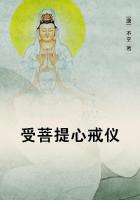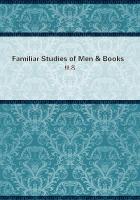II. A man is said to know any proposition, which having been once laid before his thoughts, he evidently perceived the agreement or disagreement of the ideas whereof it consists; and so lodged it in his memory, that whenever that proposition comes again to be reflected on, he, without doubt or hesitation, embraces the right side, assents to, and is certain of the truth of it. This, I think, one may call habitual knowledge. And thus a man may be said to know all those truths which are lodged in his memory, by a foregoing clear and full perception, whereof the mind is assured past doubt as often as it has occasion to reflect on them. For our finite understandings being able to think clearly and distinctly but on one thing at once, if men had no knowledge of any more than what they actually thought on, they would all be very ignorant: and he that knew most, would know but one truth, that being all he was able to think on at one time.
9. Habitual knowledge is of two degrees. Of habitual knowledge there are, also, vulgarly speaking. two degrees:
First, The one is of such truths laid up in the memory as, whenever they occur to the mind, it actually perceives the relation is between those ideas. And this is in all those truths whereof we have an intuitive knowledge; where the ideas themselves, by an immediate view, discover their agreement or disagreement one with another.
Secondly, The other is of such truths whereof the mind having been convinced, it retains the memory of the conviction, without the proofs. Thus, a man that remembers certainly that he once perceived the demonstration, that the three angles of a ******** are equal to two right ones, is certain that he knows it, because he cannot doubt the truth of it. In his adherence to a truth, where the demonstration by which it was at first known is forgot, though a man may be thought rather to believe his memory than really to know, and this way of entertaining a truth seemed formerly to me like something between opinion and knowledge; a sort of assurance which exceeds bare belief, for that relies on the testimony of another;- yet upon a due examination I find it comes not short of perfect certainty, and is in effect true knowledge. That which is apt to mislead our first thoughts into a mistake in this matter is, that the agreement or disagreement of the ideas in this case is not perceived, as it was at first, by an actual view of all the intermediate ideas whereby the agreement or disagreement of those in the proposition was at first perceived; but by other intermediate ideas, that show the agreement or disagreement of the ideas contained in the proposition whose certainty we remember. For example: in this proposition, that "the three angles of a ******** are equal to two right ones," one who has seen and clearly perceived the demonstration of this truth knows it to be true, when that demonstration is gone out of his mind; so that at present it is not actually in view, and possibly cannot be recollected: but he knows it in a different way from what he did before. The agreement of the two ideas joined in that proposition is perceived; but it is by the intervention of other ideas than those which at first produced that perception. He remembers, i.e. he knows (for remembrance is but the reviving of some past knowledge) that he was once certain of the truth of this proposition, that the three angles of a ******** are equal to two right ones. The immutability of the same relations between the same immutable things is now the idea that shows him, that if the three angles of a ******** were once equal to two right ones, they will always be equal to two right ones. And hence he comes to be certain, that what was once true in the case, is always true; what ideas once agreed will always agree; and consequently what he once knew to be true, he will always know to be true; as long as he can remember that he once knew it. Upon this ground it is, that particular demonstrations in mathematics afford general knowledge. If then the perception, that the same ideas will eternally have the same habitudes and relations, be not a sufficient ground of knowledge, there could be no knowledge of general propositions in mathematics; for no mathematical demonstration would be any other than particular: and when a man had demonstrated any proposition concerning one ******** or circle, his knowledge would not reach beyond that particular diagram. If he would extend it further, he must renew his demonstration in another instance, before he could know it to be true in another like ********, and so on: by which means one could never come to the knowledge of any general propositions.
Nobody, I think, can deny, that Mr. Newton certainly knows any proposition that he now at any time reads in his book to be true;though he has not in actual view that admirable chain of intermediate ideas whereby he at first discovered it to be true.
Such a memory as that, able to retain such a train of particulars, may be well thought beyond the reach of human faculties, when the very discovery, perception, and laying together that wonderful connexion of ideas, is found to surpass most readers' comprehension. But yet it is evident the author himself knows the proposition to be true, remembering he once saw the connexion of those ideas; as certainly as he knows such a man wounded another, remembering that he saw him run him through. But because the memory is not always so clear as actual perception, and does in all men more or less decay in length of time, this, amongst other differences, is one which shows that demonstrative knowledge is much more imperfect than intuitive, as we shall see in the following chapter.
Chapter II
Of the Degrees of our Knowledge 1. Of the degrees, or differences in clearness, of our knowledge: 1.















